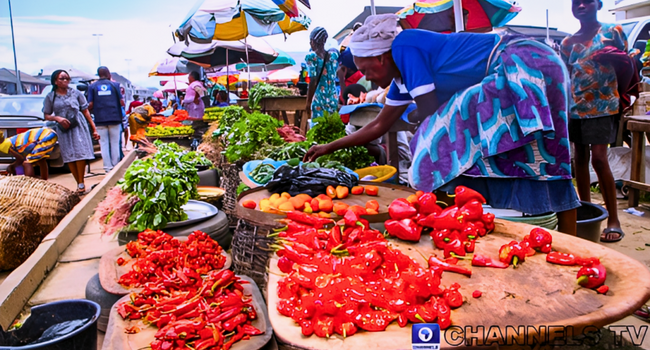Inflation and the cost of living are crucial economic indicators that can greatly impact an individual’s purchasing power, especially during the festive season. As prices of goods and services rise due to inflation, the cost of living also increases, making it more challenging for individuals to enjoy the festive season.
The combination of inflation and a high cost of living can profoundly impact purchasing power during the festive season. As prices rise and expenses increase, individuals may be forced to cut back on holiday spending, opt for lower-cost alternatives, or even forgo certain traditions altogether. This can dampen the mood of the holidays, as financial stress and constraints hinder the ability to participate fully in the festivities.
In recent years, with the COVID-19 pandemic affecting global economies, inflation and the cost of living have become even more pressing in Africa. In Nigeria for example, the festive season has come at a time when the inflationary pressure is intensifying. According to the report released by the National Bureau of Statistics (NBS) on Monday, Nigeria’s inflation rate rose to 34.6 percent in November 2024, up from 33.88 percent in October, driven by high food costs.
Supply chain disruptions, labour shortages, and increased demand for certain goods have contributed to rising prices, exacerbating the impact of inflation on purchasing power. As economies recover from the pandemic, policymakers face the challenge of balancing economic growth with controlling inflation to ensure that individuals can afford their festive season purchases.
- Advertisement -
To mitigate the effects of inflation and the cost of living on purchasing power during the festive season, individuals can take proactive steps to manage their finances effectively. Budgeting and planning ahead can help individuals prioritise their spending, allocate resources efficiently, and make informed decisions about holiday purchases. Additionally, seeking out discounts, sales, and promotions can help stretch the budget further and maximise the value of each dollar spent.
Inflation, defined as the rate at which the general level of prices for goods and services is rising, has been a recurring economic phenomenon throughout history. Inflation erodes the purchasing power of money, as it reduces the amount of goods and services that can be purchased with a unit of currency. The cost of living, on the other hand, refers to households’ average cost of maintaining a certain standard of living.
The impact of inflation and the cost of living on purchasing power can be both positive and negative. On the positive side, moderate inflation can stimulate economic growth by encouraging spending and investment. However, high inflation can lead to uncertainty and reduce consumer confidence, which may negatively affect purchasing power. Rising costs of living can also put a strain on individuals and families, making it challenging to afford necessities, let alone discretionary purchases during the festive season.
Looking ahead, individuals must be mindful of the impact of inflation and the cost of living on their purchasing power, especially during the festive season. By monitoring price fluctuations, budgeting effectively, and seeking opportunities to save money, individuals can mitigate the effects of inflation and make informed purchasing decisions. Policymakers must also continue to implement prudent monetary policies to stabilise prices and support economic growth, ultimately benefiting consumers and businesses alike.
Individuals need to stay informed about economic trends and developments that may impact their purchasing power. By staying abreast of changes in inflation rates, cost of living indices, and other economic indicators, individuals can adjust their spending habits accordingly and make informed financial decisions during the festive season.
- Advertisement -
In conclusion, inflation and the cost of living can significantly affect purchasing power, particularly during the festive season when individuals tend to increase their spending. Understanding the historical context, key figures, and impact of these economic indicators is essential for navigating the challenges they pose. By considering various perspectives and potential future developments, individuals can make informed decisions to preserve their purchasing power and enjoy a prosperous festive season.










